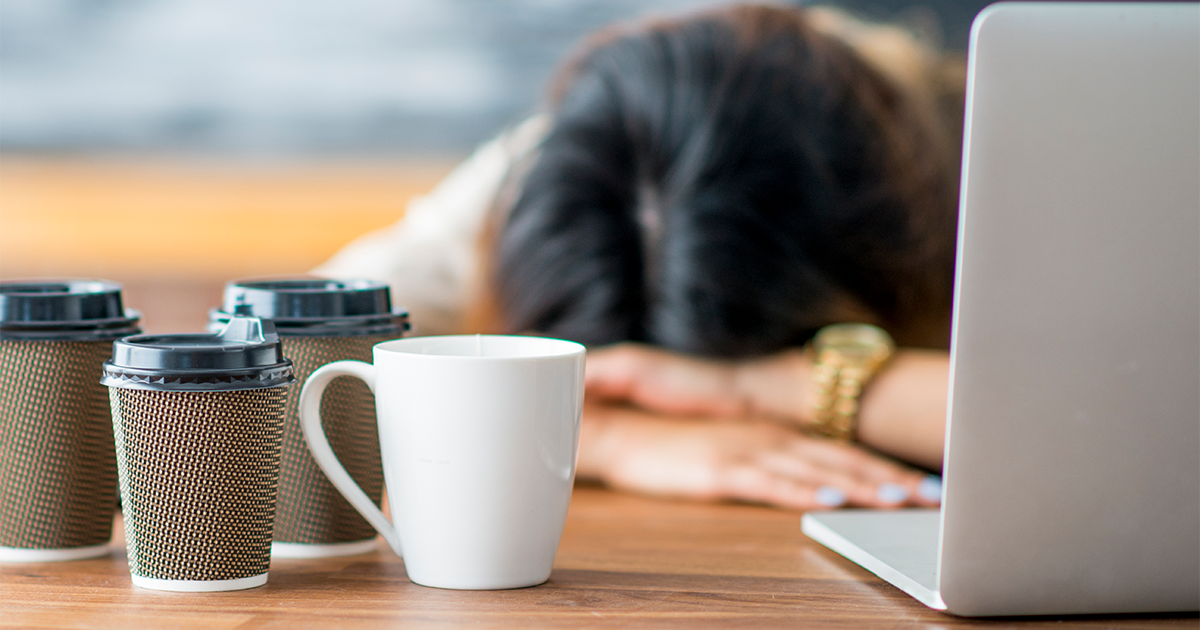
Being dehydrated goes far beyond thirst.
Every system in your body relies on the amount of water you consume, from your organs to your muscles to your blood. If you aren’t drinking enough water, your body can’t perform at its highest potential – and the results can have serious consequences.
Most people are familiar with the general signs of dehydration, such as feeling thirsty, dark-colored urine, and dizziness. However, here are five things that dehydration can also cause that put your health and well-being at risk.
A urinary tract infection (or UTI) is an infection that involves any part of your urinary system, including your urethra, bladder, or kidneys. UTIs are common but not pleasant – symptoms include cloudy, foul-smelling urine, a frequent urge to urinate, a burning sensation while urinating, and pelvic pain.
Not drinking enough water leads to concentrated urine staying in your bladder for longer periods of time. This creates a greater opportunity for UTI-causing bacteria to grow and thrive. Drink at least eight cups of water per day to give your urinary system the fluid it needs to properly flush out bacteria – and hopefully keep you UTI-free.
Yes, even your spine needs water.
When the jelly-like substance inside the discs of your spine (known scientifically as the nucleus pulposus) lose water and can no longer hold the weight of your body, the discs can collapse. The primary job of your discs is to separate the interlocking bones of your spine, providing both cushioning and mobility. If they collapse, you will likely experience severe back pain.
The nucleus pulposus inside your discs is made primarily of water. As you move your spine throughout the day, this water gradually leaks out – not a problem when you are drinking enough, as gravity does its job and pulls water back down your spine. But when there isn’t enough water to rehydrate the discs, they begin to shrink and can eventually collapse.
Sometimes, back pain is just the beginning. A collapsed disc (even at a minor level) often puts pressure on the sensitive nerves within your spinal column, which can cause pain throughout your body. So, drink up to give your discs all the fluid they need.
Hydrating properly is good for your heart, which pumps about 2,000 gallons of blood every day. When you’re dehydrated, your heart compensates by pumping faster and working harder. Your blood may also thicken due to the lack of water, making even more work for your heart.
All that extra work can cause chest pain, especially for people with heart disease. Many dehydrated people also experience heart palpitations, as their heart beats more rapidly or out of rhythm. If you’re unable to breathe, feel pain or tightness in your chest, or faint when you have palpitations, seek medical treatment immediately.
Keeping your blood pressure at a healthy level is key to delivering oxygen and nutrients to every part of your body, and drinking enough fluids is an important part of that. When you’re dehydrated, the sodium levels in your blood typically rise. In response, your body releases a hormone called vasopressin that’s designed to help your body hang onto water.
The problem: vasopressin can also cause your blood vessels to tighten, which raises blood pressure. Spikes in blood pressure are especially concerning for those who already have hypertension. Chronic high blood pressure damages your blood vessels, including your coronary arteries, which supply blood and oxygen to your heart muscle. This can lead to an increased risk of heart disease and strokes — currently the #1 and #2 causes of death in the United States.
Most people associate fatigue with not getting enough sleep, but not getting enough fluid may be the real culprit. When dehydration sets in, your blood pressure begins to drop, reducing blood flow to your brain and causing feelings of tiredness to begin. Your heart begins to work much harder as well (see above), which has the same effect.
Dehydration is also linked to poor sleep for a number of reasons, such as muscle cramps that can wake you and disrupt your sleep cycle. Dehydration also dries out your nasal passages, which increases your chances of snoring and decreases the quality of your sleep.
You can have mild, moderate, or severe dehydration, depending on how much fluid is missing from your body. The most common symptoms of dehydration include:
Yes, for severe cases of dehydration that require stabilization prior to transport to the emergency department, IV fluids can be administered at urgent care. IV fluids aren’t routinely administered as mild or moderate cases of dehydration can usually be treated at home.
Urgent care centers like vybe can also provide treatment for UTIs, back pain, chest pain, high blood pressure, or any other ailments that were possibly caused by dehydration.
All vybe centers have licensed medical professionals with a wide range of healthcare knowledge and provide top-notch urgent care services seven days a week. Walk in or schedule an appointment at one of our convenient locations today.
FIND YOUR VYBE